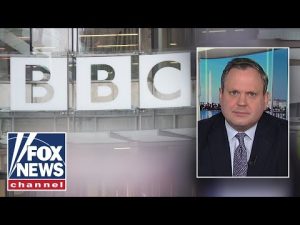In a world where today’s headlines often read more like a plot from a satirical drama than genuine news, it’s noteworthy that the administration recently managed to wrangle something that resembles a concrete achievement – or at least they claim it to be one. The latest announcement showed up like a bolo tie at a black-tie gala, seemingly out of place but demanding attention nonetheless. Treasury Secretary Scott Bessent, while sharing the screen with a rather enthused anchor, strained his voice to tell the audience about a new agreement with the Saudis that aims to inject a trillion dollars into the U.S. financial system. This move, which they enthusiastically attribute to brilliant economic prowess, seems aimed at portraying the administration as doing something—anything, really—for the American people.
A focus of the conversation was on an impressive-sounding leap from $600 billion to a trillion dollars in investments. That’s enough money to make Jeff Bezos rethink Amazon Prime’s next price increase. This was presented as proof of America’s allure, showcasing our military strength, robust economy, and groundbreaking technology. The Saudis, having presumably seen an episode or two of “Shark Tank,” have decided that America is a solid bet, hence their interest in F-35 jets and technology partnerships. One might wonder aloud, as many folks probably do at their kitchen table, about the appropriateness of exchanging cutting-edge military technologies with nations that, up to recently, have been a bit unpredictable with their alliances.
Not to be overlooked is the President’s ambitious claim of attracting unheard-of investment sums – sums so large they could possibly be mistaken for telephone numbers if you weren’t paying attention. The administration boasts these commitments far surpass those of previous administrations. Evidently, historic deregulation has invited waves of investment into our otherwise floundering economy, according to the administration’s narrative. While financial machinations and global partnerships have their merits, everyday Americans might find themselves wondering if this will ever trickle down to lower gas prices or cheaper avocados.
In a curious twist, the same administration that critics say failed to address skyrocketing inflation now suggests a remedy akin to covering a patch of sinking sand with a fresh coat of paint. They offer the dazzling spectacle of trillion-dollar numbers and initiatives designed to ingratiate Americans into the economy from birth. That’s right, every child born for the next three years gets a stock market-linked government account. That’s a bold step that might make even a cynical social studies teacher pay a bit more attention in class—maybe.
However, one can’t help but notice that amid these grand financial declarations, there lurks an elephant in the press room: the affordability crisis. There’s a universe in which Democrats play a role in this narrative, often blamed for the current mess. However, while there’s plenty of blaming to go around, what’s less clear is how these trillion-dollar plans translate into tangible improvements for Main Street. Saving up for a universal holiday fund might sound fun, but regular folks are likely more concerned about seeing immediate relief at the grocery store checkout than the distant promise of trillion-dollar windfalls. As always, reality is stranger than fiction, but one hopes the next act is a bit more relatable for the audiences at home.







